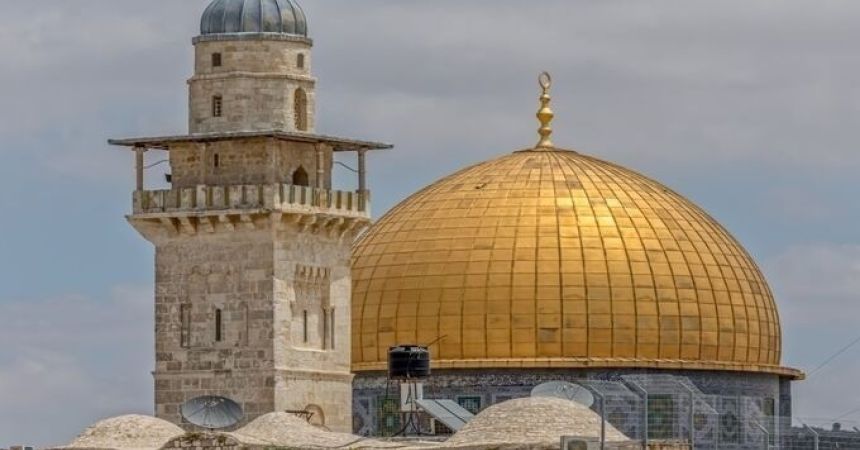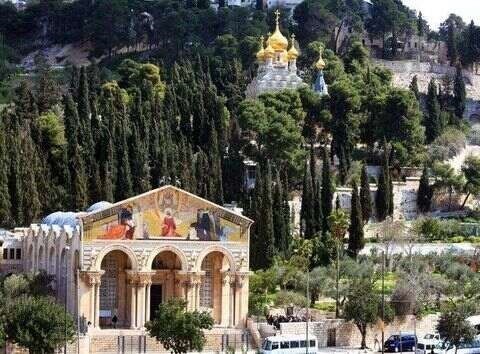
Israel Travel Guide: Tips, Attractions, and Itineraries
Israel, a country steeped in ancient history, vibrant culture, and stunning landscapes, is a captivating destination for travelers. From the bustling streets of Tel Aviv to the ancient ruins of Jerusalem and the natural beauty of the Dead Sea, Israel offers a diverse array of experiences. This comprehensive travel guide will provide you with essential information, travel tips, and insights to help you navigate and enjoy your journey through Israel.
Israel: A Land of Contrasts and Connections
Israel, located in the Middle East along the eastern shore of the Mediterranean Sea, is a land of contrasts and connections. It’s a place where historical significance meets modern vibrancy, and where diverse landscapes—from arid deserts to lush forests—provide endless opportunities for exploration. Whether you're drawn to its religious significance, historical landmarks, or natural beauty, Israel promises a memorable and enriching experience.
Top Destinations in Israel
-
Jerusalem: The Eternal City
Overview:
Jerusalem, one of the oldest cities in the world, is a spiritual and historical epicenter for Jews, Christians, and Muslims. Its ancient streets, holy sites, and rich cultural heritage make it a must-visit destination.
Must-See Attractions:
- The Western Wall: The Western Wall, also known as the Wailing Wall, is a sacred site for Jews. Visitors can observe or participate in prayers, and the atmosphere of reverence is palpable. It’s a place of pilgrimage and reflection.
- The Dome of the Rock: Located on the Temple Mount, the Dome of the Rock is an iconic Islamic shrine with a stunning gold-plated dome. It’s one of the oldest examples of Islamic architecture and an important religious site.
- The Church of the Holy Sepulchre: This church is believed to be the site of Jesus' crucifixion, burial, and resurrection. It’s a significant pilgrimage site for Christians and features elaborate chapels and religious relics.
- The Old City: Explore the labyrinthine streets of Jerusalem’s Old City, divided into four quarters: Jewish, Christian, Muslim, and Armenian. Each quarter has its own unique character and historical sites.
Tips:
- Spend at least 2-3 days in Jerusalem to fully appreciate its religious and historical significance.
- Dress modestly when visiting religious sites, and be respectful of local customs and traditions.
- Consider taking a guided tour to gain deeper insights into the city's history and significance.
Tel Aviv: The Modern Metropolis
Overview:
Tel Aviv, Israel’s cultural and economic hub, is known for its vibrant nightlife, modern architecture, and Mediterranean beaches. It contrasts with the historical and religious atmosphere of Jerusalem.
Must-See Attractions:
- Carmel Market: Visit the Carmel Market for a lively shopping experience. The market offers fresh produce, spices, street food, and unique souvenirs. It’s a great place to experience Tel Aviv’s culinary scene.
- Neve Tzedek: Explore Neve Tzedek, one of Tel Aviv’s oldest neighborhoods, known for its charming streets, boutique shops, and art galleries. It’s a trendy area with a bohemian atmosphere.
- Tel Aviv Port Area: Enjoy the Tel Aviv Port Area, a revitalized waterfront with restaurants, shops, and a bustling promenade. It’s a great spot to relax and enjoy the Mediterranean views.
- Bauhaus Architecture: Discover Tel Aviv’s Bauhaus architecture, particularly in the White City area. The city is known for its early 20th-century modernist buildings, a UNESCO World Heritage Site.
Tips:
- Allocate 2-3 days in Tel Aviv to experience its dynamic culture, beaches, and modern attractions.
- Tel Aviv is known for its vibrant nightlife, so consider exploring its bars, clubs, and music venues.
- Public transportation and bike rentals are convenient ways to get around the city.
Haifa: The Port City
Overview:
Haifa, a major port city located on the northern coast of Israel, is known for its picturesque views, diverse communities, and cultural attractions. It’s a gateway to the northern region of the country.
Must-See Attractions:
- Baha'i Gardens: The Baha'i Gardens, a UNESCO World Heritage Site, are a stunning example of landscape design. The gardens are terraced on Mount Carmel and offer breathtaking views of the city and the Mediterranean Sea.
- Haifa Port: Explore Haifa’s bustling port area, which features a mix of modern attractions and historical sites. The port is a vibrant area with restaurants, shops, and cultural events.
- German Colony: Visit the German Colony, a historic area with charming architecture, cafes, and boutiques. It’s a great place to explore Haifa’s multicultural heritage.
Tips:
- Spend 1-2 days in Haifa to explore its key attractions and enjoy its coastal setting.
- Haifa’s Baha'i Gardens are best visited in the morning or late afternoon to avoid the heat and crowds.
- Use public transportation or taxis to get around the city, as Haifa is spread out and parking can be challenging.
Eilat: The Resort Town
Overview:
Eilat, located at the southern trip of Israel along the Red Sea, is a popular resort town known for its beautiful beaches, coral reefs, and vibrant nightlife. It’s an ideal destination for relaxation and outdoor activities.
Must-See Attractions:
- Coral Beach: Enjoy the pristine Coral Beach, known for its clear waters and vibrant marine life. It’s a great spot for snorkeling and diving to explore the colorful coral reefs.
- Timna Park: Visit Timna Park to see ancient copper mines and unique desert landscapes. The park features rock formations, hiking trails, and historical artifacts.
- Eilat Dolphin Reef: Experience the Eilat Dolphin Reef, where you can observe dolphins in their natural habitat and even swim with them.
Tips:
- Allocate 2-3 days in Eilat to relax on the beach, explore the coral reefs, and enjoy outdoor activities.
- Eilat is known for its warm weather year-round, so pack lightweight and sun-protective clothing.
- Consider booking excursions or tours in advance, especially for popular activities like snorkeling and diving.
The Dead Sea: A Unique Natural Wonder
Overview:
The Dead Sea, located at the lowest point on Earth, is renowned for its saline waters, therapeutic mud, and unique landscape. It’s a must-visit destination for relaxation and health benefits.

Must-See Attractions:
- Floating in the Dead Sea: Experience the sensation of floating effortlessly in the Dead Sea’s hyper-saline waters. It’s a unique and therapeutic experience due to the high mineral content of the water.
- Mud Baths: Enjoy a mud bath using the therapeutic mud found along the shores of the Dead Sea. The mud is rich in minerals and is believed to have skin benefits.
- Masada: Visit the ancient fortress of Masada, located on a plateau overlooking the Dead Sea. The site has historical significance and offers stunning views of the surrounding desert.
Tips:
- Spend at least half a day at the Dead Sea to fully enjoy the floating experience and mud baths.
- Be cautious not to get the salty water in your eyes or mouth, as it can be irritating.
- Bring sunscreen, a hat, and water to stay hydrated, as the area can be very hot and dry.
Practical Travel Tips for Israel
-
Visa and Entry Requirements
Visas:
- Many travelers can enter Israel without a visa for stays of up to 90 days. Check the visa requirements for your nationality before traveling, as regulations can vary.
Passport Validity:
- Ensure your passport is valid for at least six months beyond your planned departure date from Israel.
Language and Currency
Language:
- Hebrew is the official language of Israel, but English is widely spoken, especially in tourist areas and major cities. Arabic is also commonly used, particularly in areas with Arab populations.
Currency:
- The currency used in Israel is the Israeli Shekel (ILS). Credit and debit cards are widely accepted, but carrying some cash is advisable for smaller shops and markets.
Health and Safety
Vaccinations:
- Check recommended vaccinations before traveling to Israel and carry a basic first-aid kit.
Safety:
- Israel is generally safe for tourists, but it’s important to stay informed about local conditions and follow any travel advisories. Be cautious in crowded areas and follow security guidelines at public sites.
Transportation
Internal Flights:
- Israel has a network of domestic flights connecting major cities and tourist destinations. Airlines such as El Al and Arkia offer flights within the country.
Public Transportation:
- Public transportation includes trains, buses, and taxis. The Israeli railway system connects major cities, and buses serve both urban and rural areas. Taxis are widely available and convenient for short trips.
Car Rental:
- Renting a car is a popular option for exploring Israel at your own pace. Ensure you have an international driving permit and familiarize yourself with local driving rules.
Guided Tours:
- Consider joining guided tours for a more in-depth experience and convenient transportation to key sites, especially for historical and religious landmarks.
Accommodations
Types of Accommodation:
- Israel offers a range of accommodations, from luxury hotels and boutique guesthouses to budget hostels and vacation rentals. In major cities and tourist areas, you’ll find options to suit all budgets.
Luxury Hotels:
- Israel has a selection of luxury hotels and resorts, particularly in cities like Tel Aviv and Jerusalem. These offer high-end amenities, spas, and fine dining options.
Hostels and Guesthouses:
- Budget travelers can find hostels and guesthouses that offer affordable rates and a chance to meet fellow travelers. These are often located in central areas with easy access to public transportation.
Cultural Etiquette
Dress Code:
- Dress modestly, especially when visiting religious sites. Women should cover their shoulders and knees, while men should avoid wearing shorts in places of worship.
Tipping:
- Tipping is customary in Israel. It’s common to leave a 10-15% tip in restaurants and cafes, and to tip hotel staff and taxi drivers.
Respect for Local Customs:
- Be mindful of local customs and traditions. Follow any specific rules or guidelines when visiting religious sites, and be respectful of local practices and beliefs.
Israel: A Land of Diverse Experience
Israel is a land of remarkable diversity, offering a rich tapestry of experiences for travelers. From the ancient streets of Jerusalem to the modern vibrancy of Tel Aviv, and from the natural wonders of the Dead Sea to the coastal charm of Eilat, Israel provides a wealth of exploration and discovery. By following this comprehensive travel guide, you’ll be well-prepared to navigate the country’s attractions, culture, and practicalities, ensuring a memorable and enriching journey through this fascinating and historic land. Enjoy your adventure in Israel, where history, culture, and natural beauty come together to create an unforgettable travel experience.



